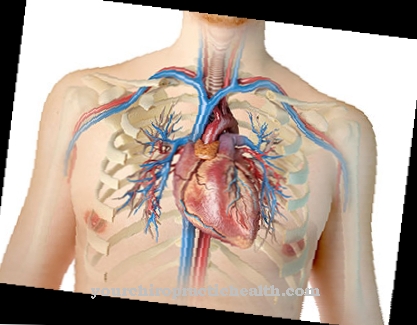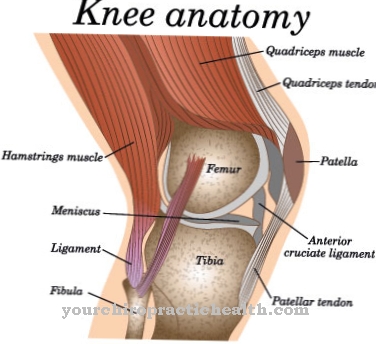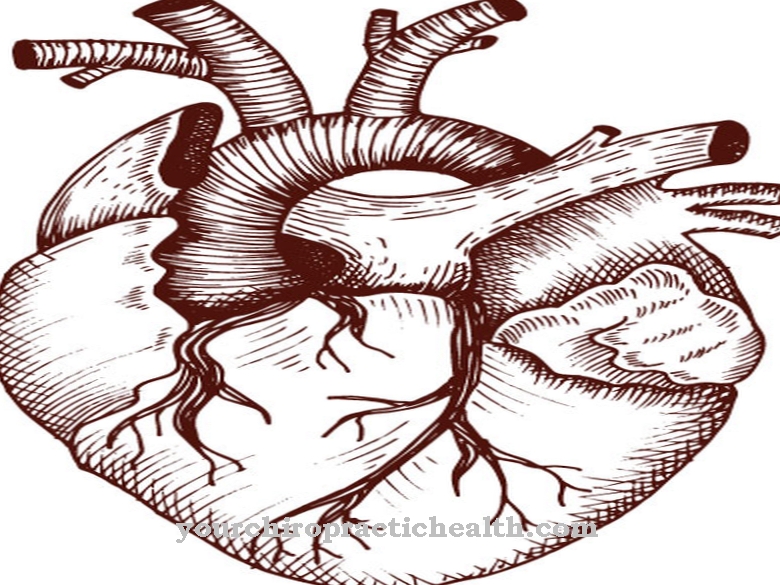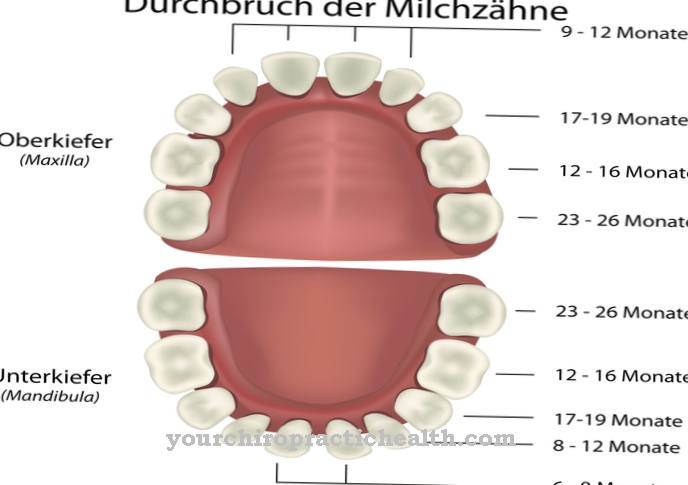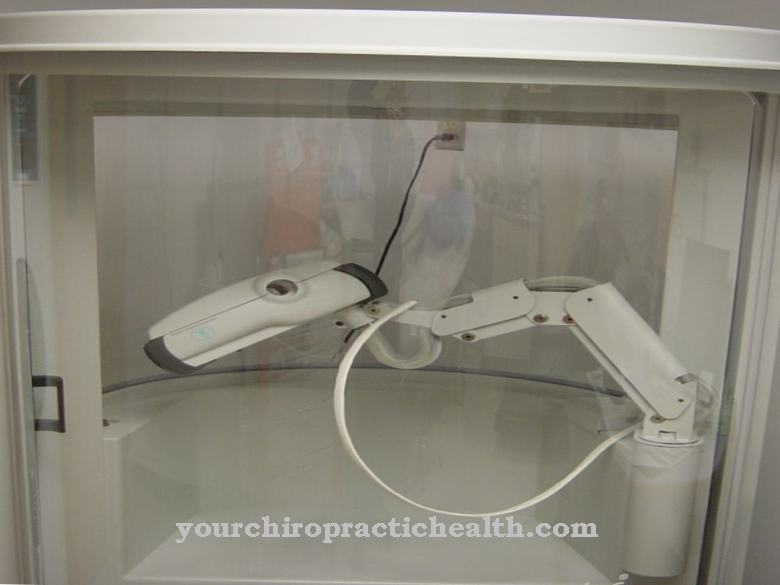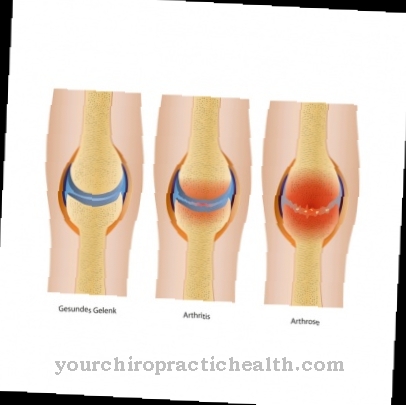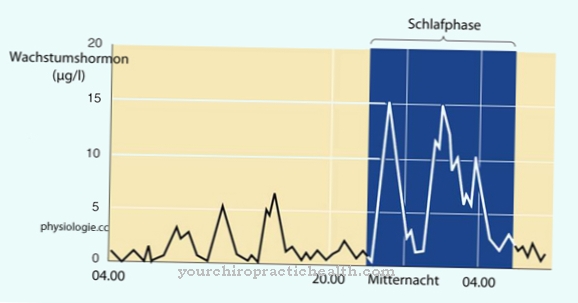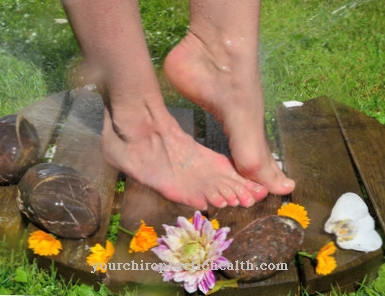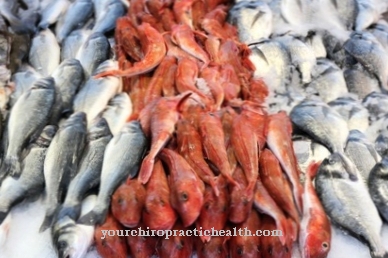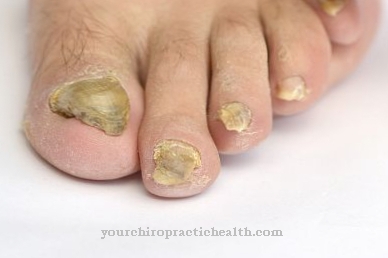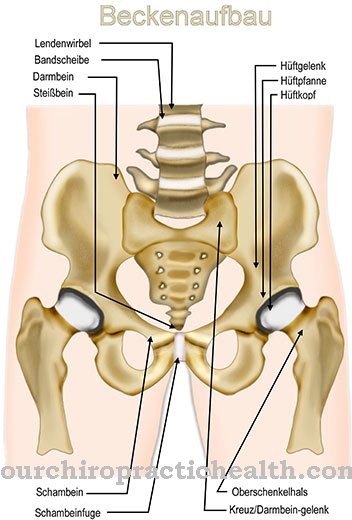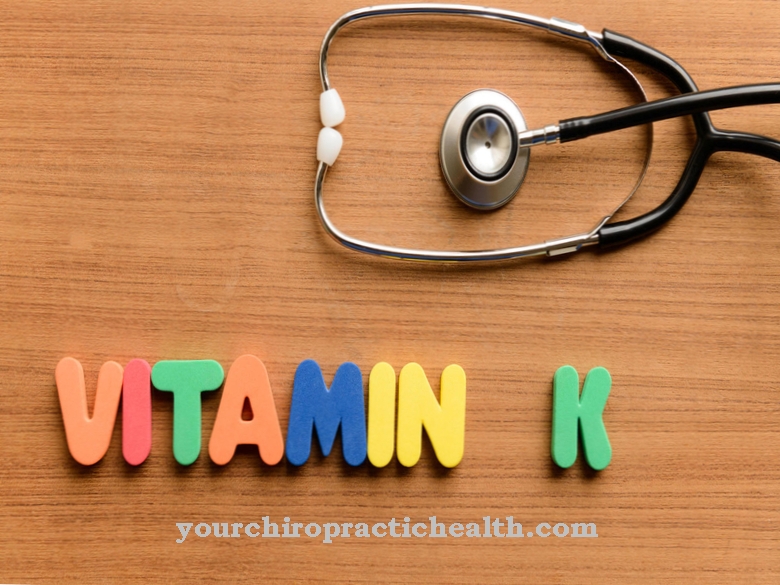The perioral dermatitis, also as Oral rose known, is a non-contagious and harmless disease of the facial skin, which manifests itself as redness and pimples. In most cases, it is caused by excessive use of skin care products on the face. If you consistently do without these care products, perioral dermatitis usually heals without any problems.
What is perioral dermatitis?
.jpg)
© ysbrandcosijn - stock.adobe.com
In the 'perioral dermatitis, which is also colloquially known as Oral rose is called, it is a harmless disease of the facial skin.
Perioral dermatitis primarily affects women approximately 20 to 40 years of age. However, there are also known cases in which men or children suffer from oral rose. The harmless skin disease manifests itself as red pustules, spots, irritations and pimples in the area of the nose, forehead and mouth.
Perioral dermatitis is often very psychologically stressful for affected patients, even if it is one of the harmless diseases. Oral rose is neither contagious nor transmissible and usually heals without major difficulties.
causes
As a perioral dermatitis arises is not really known. Medical professionals suspect, however, that the rose in the mouth is related to excessive care of the facial skin and the cosmetic and cleaning products used.
This is why the disease is also called Stewardess sickness referred to because this professional group attaches great importance to their appearance and also used cortisone-containing products a few years ago to improve the skin of the face without medical supervision. It is now known that cortisone promotes the development of perioral dermatitis. In addition, there are certain risk factors that can justify the development of an oral rose. This includes, for example, easily irritable or very sensitive skin or the presence of certain allergies, such as against fragrances or ingredients of cosmetics.
Excessive use of cosmetics or cleaning products disrupts the skin's natural protective barrier, it dries out and at the same time becomes more sensitive to infections. Affected patients often have the feeling of having particularly dry facial skin and are increasingly using care products. This also promotes the development of a rose in the mouth.
Symptoms, ailments & signs
It is typical of perioral dermatitis that the symptoms only appear on the face, mainly around the mouth (perioral). The lips are not affected, a small, narrow strip remains, which is symptom-free and in which there is no rash. The skin becomes dry, tight and stinging.
In addition, the face may be puffy and red. Itching and flaking are also possible. Furthermore, red nodules or pus-filled blisters a few millimeters in diameter can form. Although the characteristic location of perioral dermatitis is the mouth region, it can also appear on the chin, nose, especially on the wings of the nose and on the cheeks.
The skin symptoms are less common on the forehead, around the eyes or on the eyelids. Only in exceptional cases do they spread over the whole face and down to the neck. The rash is aggravated by UV light, but also by mechanical irritation if the patient scratches the affected areas because of the itching.
Hormonal fluctuations can also make symptoms worse. For women, this sometimes happens before their period starts. Since the rash is clearly visible on the face and cannot be covered, those affected often feel disfigured and suffer greatly.
Diagnosis & course
The perioral dermatitis can be diagnosed relatively quickly by a dermatologist based on the typical redness and pimples on the face.
However, with the help of certain skin tests and blood tests, he will rule out worse diseases such as acne or neurodermatitis. In addition to examining the skin of the face, the dermatologist asks about the care products used and how they are used, in order to draw up a treatment plan for the oral rose.
If the patient adheres to the doctor's recommendation and temporarily refrains from using the care products, the perioral dermatitis usually improves very quickly. The rose in the mouth can be expected to heal within a few weeks.
Complications
Serious physical complications are not to be feared with perioral dermatitis. Oral rose can only be seen on the face and is limited to superficial impairments. There is no damage to the skin. In addition, the disease can be treated without any problems.
Antibiotics can only be used in severe cases. Perioral dermatitis usually heals within four to six weeks without any consequences. However, it occurs again later in some patients.
It is important that the oral rose is treated consistently, which includes weaning the skin off of creams. This requires plenty of self-discipline. In the early stages of treatment, those affected often have a greater feeling of tension in the skin due to the withdrawal of cosmetics.
Perioral dermatitis can have negative consequences if it is not treated. There is a risk of relapsing and chronic disease. It can then take several months or even years for the rose in the mouth to heal. But sometimes it also heals without leaving any scars.
If severe facial damage occurs as a result of perioral dermatitis, this increases the risk of bacterial infections that require medical treatment.
A common complication of oral rose is psychological impairment. In such cases, those affected are so ashamed of their appearance that they isolate themselves socially. Psychotherapy can prove to be useful in the case of severe emotional stress.
When should you go to the doctor?
If there are peculiarities and changes in the complexion of the skin when using cosmetic products or care preparations, the products should not be used any further as a first step. If there is an improvement in health and if the irregularities are completely healed, the creams used must be checked for the ingredients and avoided in the future. In addition, it is recommended that an allergy test be carried out by a dermatologist so that the person concerned has an overview of the existing intolerances.
If the symptoms arise after using the prescribed medicines, it is necessary to consult with the attending physician. Dry skin, the development of scales on the mouth, and blistering should be presented to a doctor. A doctor should be consulted in the event of sporadic changes in the complexion of the skin that occur in sexually mature girls and women in connection with menstruation. The hormonal fluctuations can be treated and treated in medical care. Itching, open wounds, and spread of the affected area to other areas of the face should be discussed with a doctor.
Caution should be exercised if pus forms. In severe cases, sepsis and thus a life-threatening condition can occur. If the person concerned suffers from mental and emotional irregularities due to the skin changes, a doctor should also be visited.
Treatment & Therapy
At a perioral dermatitis In most cases, the attending physician advises stopping the use of cosmetic and skin care products so that the skin can recover and calm down.
However, this is difficult for many patients, mainly because the oral rose may temporarily worsen after stopping it. In this case, the doctor usually recommends medically sensible and harmless products to the patient that are used as a substitute for the usual cosmetics.
In more severe forms of perioral dermatitis, there may be inflammation of the skin on the face, which must be treated by the doctor with antibiotic creams or medication. Under no circumstances should affected patients experiment with creams or ointments containing cortisone themselves.
This active ingredient additionally intensifies the problem of oral rose. An effective treatment of perioral dermatitis is only possible in consultation with a dermatologist.
Outlook & forecast
In most cases, the oral rose can be cured relatively well. The disease itself is relatively harmless and cannot be passed on to other people through the infection. However, if you have an oral rose, you should consult a doctor relatively early and continue treatment so that there are no complications or other complaints in the further course. Self-healing only rarely occurs, so that medical and caring products should generally always be used to counteract the symptoms of oral rose.
If the oral rose is not treated at all, it can continue to spread and significantly reduce the aesthetics of the person affected. Many of those affected suffer from a reduced quality of life and also from reduced self-confidence.
Treatment of the rose in the mouth can permanently limit the symptoms, although a new infection is still possible. Complete protection against the disease cannot be established with it. In many cases, visits to a beautician are also very important in order to prevent the disease from occurring again. Stress should also be avoided, although a healthy lifestyle with a healthy diet can also have a positive effect on the further course of this disease.
prevention
In principle, everyone can participate in the perioral dermatitis get sick. To avoid the onset of the skin disease, it is advisable to use as few facial care products as possible. If a patient has already had a rose in the mouth, he should be careful not to over-care for the skin again. Otherwise, there is a high risk of perioral dermatitis recurring.
Aftercare
Follow-up care consists primarily of preventing recurrence of the recurrence of perioral dermatitis. Patients can help with the regeneration of the affected skin with special treatments by trained cosmeticians. If possible, no additional care products or cosmetics should be used during the treatment of an acute outbreak. Nevertheless, those affected can gradually use products without irritating ingredients such as fragrances, preservatives or emulsifiers as part of their aftercare.
Special plant substances and vitamins, such as those contained in skin care packs, help sensitive skin to regenerate. Linoleic acid is a particularly important active ingredient. The doubly unsaturated fatty acid soothes skin inflammation and improves the resistance of stressed skin. It is also recommended to use aloe vera because it has anti-inflammatory properties and soothes the skin.
The sun vitamin D is also important for aftercare, as it helps to heal inflammation. To reduce the visible veins, the vascular walls of the skin should be strengthened with the help of vitamin K. Amino acids are also recommended. These protein building blocks regenerate the skin that has just healed.
Hyaluronic acid, on the other hand, promotes the skin's natural ability to store water and thus prevents it from drying out. Those affected are advised to contact a trained beautician for follow-up care, who is in contact with the treating dermatologist if possible.
You can do that yourself
With perioral dermatitis, patients can do some things themselves to alleviate it. Above all, it is important not to end the therapy early, otherwise the symptoms are very likely to recur.
The aim of the therapy is to eliminate the factors that cause disease in the skin. To do this, it is essential to do without cosmetic care products and make-up. The face should only be cleaned with clean water. Even with a feeling of tension, based on the effects of the rose in the mouth, patients should only apply a moisturizing cream after consulting their doctor.
A zinc cream, on the other hand, supports the healing of perioral dermatitis and should be applied thinly to the affected area of the skin. Toppers with black or green tea also help to heal the rose in the mouth. To do this, the tea must be cooled down on a piece of cloth and then placed on the inflamed area on the face for about 15 minutes. During the 15-minute treatment, the pad should be soaked several times in order to benefit from the accompanying cooling effect. The tannins in tea lead to the diseased skin area drying out and thus healing.

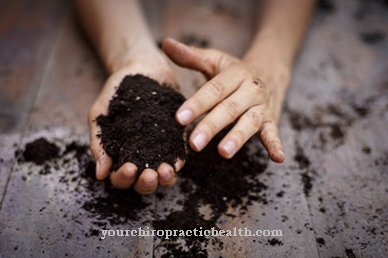
.jpg)

